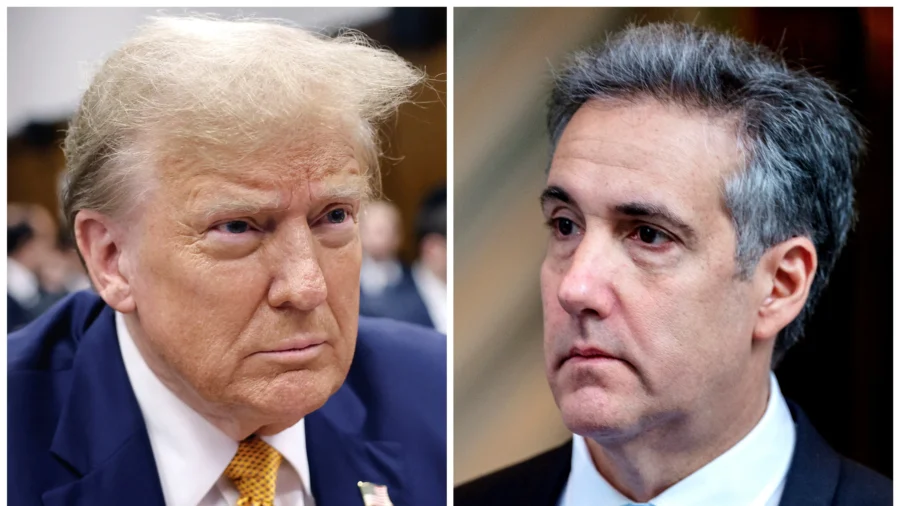The Supreme Court on Oct. 21 rejected a request from former Trump attorney Michael Cohen to hear his case alleging retaliation by his ex-boss.
The court’s rejection was part of a longer order list and didn’t include any explanation. Cohen had argued that two lower courts wrongly dismissed a claim that former President Donald Trump violated his rights by ending his prison furlough during the COVID-19 pandemic.
According to Cohen’s petition, he had objected to a federal form that probation officers asked him to sign, which prohibited him from engaging with the media, including posting on social media. At the time, he was writing a book critical of the former president.
Cohen’s attorney, Jon-Michael Dougherty, said the ruling “signals a dangerous moment in American democracy,” and raises questions about free-speech rights.
Trump attorney Alina Habba said the Supreme Court had correctly denied Cohen’s petition and that “he must finally abandon his frivolous and desperate claims.”
Both Trump and the Justice Department filed briefs opposing Cohen’s petition. Cohen had attempted to claim a private right of action under the Supreme Court’s 1971 precedent in Bivens v. Six Unknown Federal Narcotics Agents.
That case upheld a cause of action related to unlawful searches and seizures, and Cohen asked the Supreme Court to consider whether it should apply to his circumstances. He alleged that he faced “retaliation for his refusal to waive his right to free speech.”
U.S. Solicitor General Elizabeth Prelogar similarly raised concerns about separation of powers and argued that Cohen could have pursued alternative remedies such as the Bureau of Prisons’ Administrative Remedy Program.
Trump told the court that Cohen’s attempt to expand the precedent under Bivens would disrupt the Constitution’s separation of powers. He added that the doctrine of presidential immunity presented an “insurmountable obstacle” to Cohen’s claim.
In July, the Supreme Court broadened the scope of immunity enjoyed by presidents in response to an appeal from Trump. That decision was cited by Trump in his brief opposing Cohen’s petition and has been raised in Trump’s attempt to challenge his guilty verdict in New York City.
The Supreme Court’s order was the latest in a string of developments surrounding Cohen and Trump’s ill-fated working relationship. Once a longtime attorney of Trump, Cohen participated in the business magnate’s 2016 presidential campaign and played a key role in Manhattan District Attorney Alvin Bragg’s prosecution of the former president for alleged election interference.
In 2018, Cohen was sentenced to three years in prison after pleading guilty on multiple counts, including alleged campaign finance violations. Cohen also pleaded guilty to making false statements to Congress.
He alleged that during furlough, he was asked to sign a Federal Location Monitoring Program Participant Agreement that contained a provision prohibiting engagement with the media that was not “standard.”
His Supreme Court petition noted that the agreement “would have prevented Cohen from publishing his book and speaking publicly about Trump.” When Cohen and his attorney asked for the provision’s removal, probation officers said they would check with their superiors before Cohen was eventually redirected back to federal prison.
“Respondent James Petrucci, the prison’s warden, placed Cohen in solitary confinement where Cohen spent roughly twenty-three-and-a-half hours a day alone in a cell with poor ventilation, no air conditioning, and a broken window,” Cohen’s petition reads.
Southern District of New York Judge Alvin Hellerstein ordered Cohen’s release in 2020, saying the government retaliated against him and violated his First Amendment rights. Another federal judge from the same district, Judge Lewis Liman, dismissed Cohen’s claims under the Bivens precedent but said the court “pauses to reiterate the profound violence this holding does to Cohen’s constitutional rights.”
On appeal, the U.S. Court of Appeals for the Second Circuit affirmed Liman’s decision.
The Associated Press contributed to this report.
From The Epoch Times

